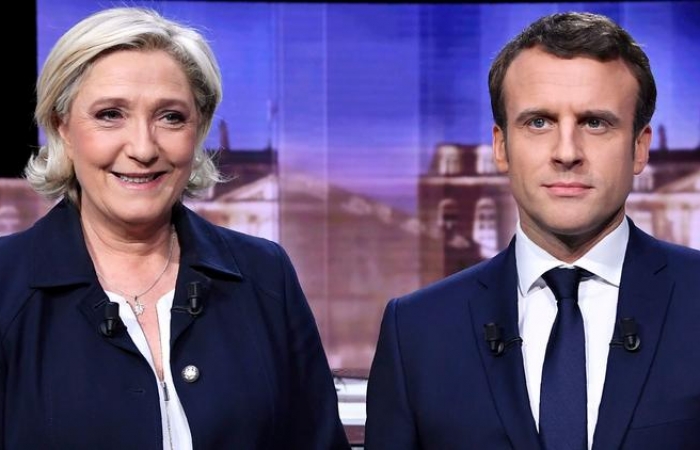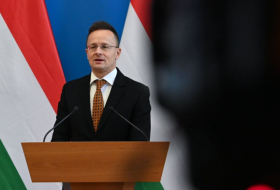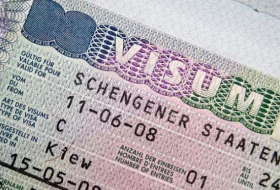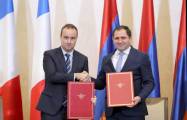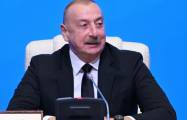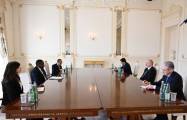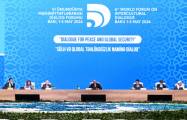The choice between candidates, however, could hardly be more stark.
A victory by far-right candidate Marine Le Pen would shake the foundations of the Western world. President Trump's victory was seen as consequential in Europe, but a Le Pen win would be incomparably more significant, some liberals say. Whereas Trump has frequently changed his mind on issues, Le Pen's agenda has remained virtually unchanged for years. She has vowed to pull France out of NATO's military command, the euro zone and the European Union. Few doubt that she would deliver.
Her centrist opponent, Emmanuel Macron, who is leading in the polls, takes an opposing view: His pro-European agenda is based on a neoliberal economic approach and on a moderate stance on social issues. He would also be the most pro-American French president in a long time.
“With Macron as French president, the U.S. will encounter a much stronger, strategic, self-confident, forward-thinking France and therefore Europe,” said Nicholas Dungan, a senior fellow at the D.C.-based Atlantic Council who works in France. “The U.S., whether it understands it or not, needs a strong Europe.”
Americans who live in France say there are several reasons that a Macron victory could benefit the United States. France is a strong NATO ally and has recently conducted airstrikes against the Islamic State alongside the United States and other nations. French forces have also participated in NATO operations in Afghanistan. Le Pen, however, wants to cooperate more closely with Russia instead of the United States.
Economically, a French exit from the euro zone would create market turmoil and have unpredictable long-term repercussions on exchange rates, trading policies and laws that allow American companies to operate in the European Union. After all, the E.U. is the United States' biggest trading partner.
“If Le Pen were to win, (it) will certainly impact American industries and workers,” said Martin Michelot, a Paris-based researcher with the German Marshall Fund, an American think tank.
A different approach
In the U.S., presidential and congressional elections take place simultaneously. The French head to the polls three times, making the outcome even more unpredictable.
Sunday may be the second and final round of the French presidential election. But whoever wins will need to secure yet another victory in June during the legislative elections.
If the next French president in unable to capture the lower house of Parliament, he or she will face years of governing without being able to rely on a majority of lawmakers. Although French presidents have more powers than leaders in many other nations, they still need their parties to push through legislative changes.
With France's traditional parties in disarray and a growing split along ideological lines, the winner is likely to be forced to cooperate with other parties and reach out to opponents.
It's a scenario that already reminds some of Trump's deadlock with Congress, where Democrats and some Republicans are challenging the president.
A different approach
In the U.S., presidential and congressional elections take place simultaneously. The French head to the polls three times, making the outcome even more unpredictable.
Sunday may be the second and final round of the French presidential election. But whoever wins will need to secure yet another victory in June during the legislative elections.
If the next French president in unable to capture the lower house of Parliament, he or she will face years of governing without being able to rely on a majority of lawmakers. Although French presidents have more powers than leaders in many other nations, they still need their parties to push through legislative changes.
With France's traditional parties in disarray and a growing split along ideological lines, the winner is likely to be forced to cooperate with other parties and reach out to opponents.
It's a scenario that already reminds some of Trump's deadlock with Congress, where Democrats and some Republicans are challenging the president.
Meanwhile, supporters of Macron have portrayed their candidate as the French equivalent of Obama: young, enthusiastic and optimistic about the way forward for an economically distressed nation. Such comparisons are of course flawed (Le Pen and Trump disagree on a number of issues; Macron had a hard time mobilizing even his core voters), but it is a surprising side note in a rather U.S.-skeptical nation.
Even far-leftist candidate Jean-Luc Mélenchon was portrayed by his supporters as the French Bernie Sanders. But are such comparisons driven by real similarities or by political strategy? “People like to portray us as the bad communists, but Bernie Sanders is seen in a much more positive way,” Mélenchon campaign member Luc Weinstein, 27, explained to me in Paris.
For Mélenchon, the strategy paid off to some extent: He doubled the number of his supporters within weeks — but still failed to make it to the second round.
/Washington Post/
More about: #FrenchElections








